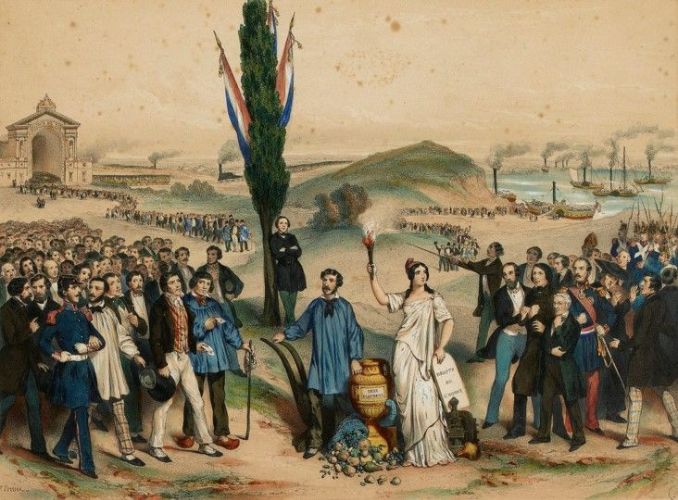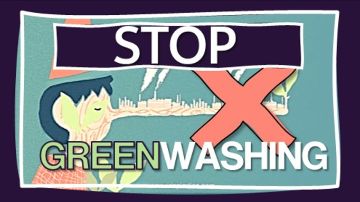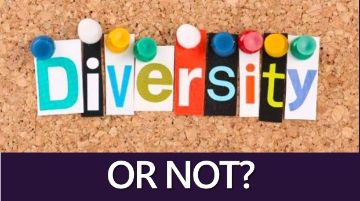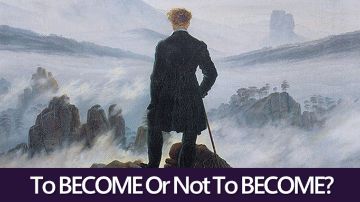
We often speak of democracy as an “ethical ideal”. “Undemocratic” has become synonymous with illegitimate — and we often find it appropriate to reprimand others who do not operate “democratically”. Sadly, commentators mostly resort to a black-and-white dichotomy of “democractic vs undemocratic” — and the depth of our excitable postmodern political discourse mostly consists of superficial populism and squabbles over voting ages and redistricting.

It is interesting that we often speak of democracy as an "ethical ideal". It seems we have accepted as an absolute truth that democracy is something we must always aim for - "undemocratic" has become synonymous with illegitimate - and we often find it appropriate to reprimand others who do not operate "democratically". Sadly, commentators mostly resort to a black-and-white dichotomy of "democractic vs undemocratic" - and the depth of our excitable postmodern political discourse mostly consists of superficial populism and squabbles over voting ages and redistricting.
Alas, for some time that was highly appropriate. When democracy was first "invented", the intention was to drive out incompetent and selfish aristocrats or kings, and attain a universal right for civic participation. Undoubtedly, a good idea! Yet, as always, whenever a discourse becomes hegemonic, it is time to take a step back and ask what other "truths" are being crowded out, and why…
It is interesting that we often speak of democracy as an "ethical ideal". It seems we have accepted as an absolute truth that democracy is something we must always aim for - "undemocratic" has become synonymous with illegitimate - and we often find it appropriate to reprimand others who do not operate "democratically". Sadly, commentators mostly resort to a black-and-white dichotomy of "democractic vs undemocratic" - and the depth of our excitable postmodern political discourse mostly consists of superficial populism and squabbles over voting ages and redistricting.
Alas, for some time that was highly appropriate. When democracy was first "invented", the intention was to drive out incompetent and selfish aristocrats or kings, and attain a universal right for civic participation. Undoubtedly, a good idea! Yet, as always, whenever a discourse becomes hegemonic, it is time to take a step back and ask what other "truths" are being crowded out, and why…

I will argue that today "democracy" is not only a highly fragile system, but in its current form often illegitimate - inasmuch as its ethical premises and ideals are unfulfilled. In most "western democracies" we find ourselves in what Aristotle suggested is a "defective" form of polity, where what "rules" are special interests and whoever "shouts loudest". We are in severe danger of replacing incompetent and selfish rulers with an equally incompetent and selfish public - unable and unwilling to contain the excesses of those who are invested with institutional or financial power.
In a nutshell, this is the problem. The ethical legitimacy of democracy is not just based on equality, but on the capacity of a political entity to enable justice for each individual and to collectively pursue the common good. In other words, what matters is not simply a distributive idea of justice, which always must be applied to take care of the weakest members of society, but also one that is predicated on merit and contribution.
In order to be effective, a good society requires a certain way of polity, and a specific capacity of policy makers. As Aristotle suggests, how many people should participate in the governance of any state will depend on the availability of wise and competent citizens - as well as on the collective need for decentralised decision-making (in response to complexity). Of course, there is a superiority implied in forms of governance that engage more citizens as they will enable prosperous participation in public society as part of a good life - but not without competence and moral maturity.
Whilst today's libertarians might find it compelling to argue for "extreme" democracy as a rule of all "by consensus", based on "individual rights of choice"; a Hayekian epistemology of the omniscient market; or an alleged "wisdom of the crowds" - the first is simply not fulfilling the requisite ethical requirements of a good society, the second is unintelligent, and the third is inapplicable to questions of value and complexity. The government of a nation is a serious affair and not a self-service store for postmodern egotistical bigotry.
The same, by the way, is true for questions of governance in modern organisation - I am participating in lots of discussions where people argue for more "industrial democracy", without any understanding of the pre-requisites or implied contributive requirements on the side of the organisational citizens, or indeed any concern for the aims or quality of good governance.
As long as we are unwilling to acknowledge this, we should not be surprised that mediocracy rules - in the form of dumb populism, incompetent politicians, and uncontrolled special interests - but, we should be very concerned that, sooner or later, a totalitarian "saviour" will arise who will promise "to fix it". We must understand that democracy is not an "ideal" per se - the ethical ideal is a "good and just society". Democracy can enable such a system, but it is hard work. It requires investement in (moral) education to ensure citizens are responsible and qualified. It needs transparency, information sharing, and active discourse and dialectics within society, to enable appropriate judgment. And, of course it is reliant on both officials and electorate to be highly competent and have excellent character. As JFK once suggested: "The ignorance of one voter in a democracy impairs the security of all". There simply is no good society without good citizens.
It also implies accepting that not everybody who has an opinion also has a right to co-decide. And, just in case someone was about to choke ;-) - it is neither fascism nor totalitarianism (the dictionary will help with taxonomy here) to demand both citizens and politicians to be qualified and wise - it is pure common sense.
#leadership #transformation #goodorganisations #leaders #wef #csr #ethics
I will argue that today "democracy" is not only a highly fragile system, but in its current form often illegitimate - inasmuch as its ethical premises and ideals are unfulfilled. In most "western democracies" we find ourselves in what Aristotle suggested is a "defective" form of polity, where what "rules" are special interests and whoever "shouts loudest". We are in severe danger of replacing incompetent and selfish rulers with an equally incompetent and selfish public - unable and unwilling to contain the excesses of those who are invested with institutional or financial power.
In a nutshell, this is the problem. The ethical legitimacy of democracy is not just based on equality, but on the capacity of a political entity to enable justice for each individual and to collectively pursue the common good. In other words, what matters is not simply a distributive idea of justice, which always must be applied to take care of the weakest members of society, but also one that is predicated on merit and contribution.
In order to be effective, a good society requires a certain way of polity, and a specific capacity of policy makers. As Aristotle suggests, how many people should participate in the governance of any state will depend on the availability of wise and competent citizens - as well as on the collective need for decentralised decision-making (in response to complexity). Of course, there is a superiority implied in forms of governance that engage more citizens as they will enable prosperous participation in public society as part of a good life - but not without competence and moral maturity.
Whilst today's libertarians might find it compelling to argue for "extreme" democracy as a rule of all "by consensus", based on "individual rights of choice"; a Hayekian epistemology of the omniscient market; or an alleged "wisdom of the crowds" - the first is simply not fulfilling the requisite ethical requirements of a good society, the second is unintelligent, and the third is inapplicable to questions of value and complexity. The government of a nation is a serious affair and not a self-service store for postmodern egotistical bigotry.
The same, by the way, is true for questions of governance in modern organisation - I am participating in lots of discussions where people argue for more "industrial democracy", without any understanding of the pre-requisites or implied contributive requirements on the side of the organisational citizens, or indeed any concern for the aims or quality of good governance.
As long as we are unwilling to acknowledge this, we should not be surprised that mediocracy rules - in the form of dumb populism, incompetent politicians, and uncontrolled special interests - but, we should be very concerned that, sooner or later, a totalitarian "saviour" will arise who will promise "to fix it". We must understand that democracy is not an "ideal" per se - the ethical ideal is a "good and just society". Democracy can enable such a system, but it is hard work. It requires investement in (moral) education to ensure citizens are responsible and qualified. It needs transparency, information sharing, and active discourse and dialectics within society, to enable appropriate judgment. And, of course it is reliant on both officials and electorate to be highly competent and have excellent character. As JFK once suggested: "The ignorance of one voter in a democracy impairs the security of all". There simply is no good society without good citizens.
It also implies accepting that not everybody who has an opinion also has a right to co-decide. And, just in case someone was about to choke ;-) - it is neither fascism nor totalitarianism (the dictionary will help with taxonomy here) to demand both citizens and politicians to be qualified and wise - it is pure common sense.
#leadership #transformation #goodorganisations #leaders #wef #csr #ethics
Popular articles in the KnowledgeHub: Good Society





 .
.